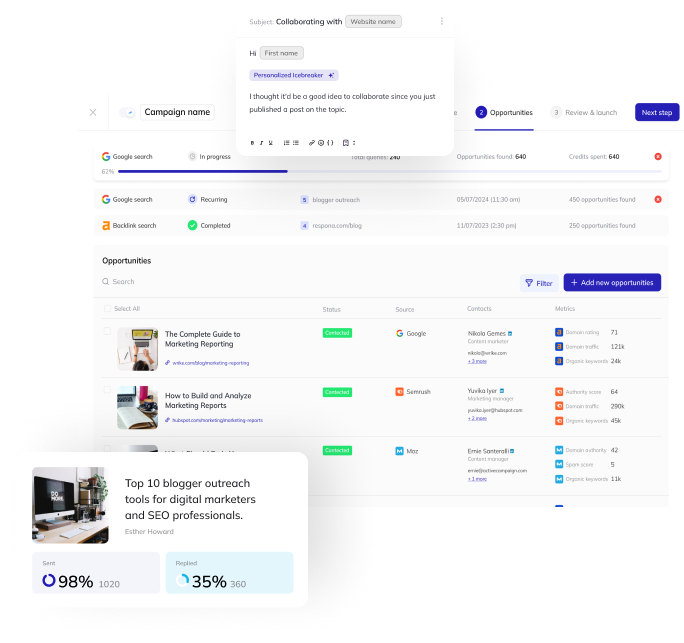Link building for startups is especially important.
In fact, a high quality backlink profile can be what sets you apart from your competitors – by helping you rank higher on SERPs.
In this article, we’ll cover:
- Why link building for startups is so important
- What do you need to get started with link building
- Our top 5 link building strategies for startups
Let’s get started.
Link building cheat sheet
Why do Startups need Link Building?
Regardless of your niche, if your startup hasn’t been on the market for a decade, you’d likely find it challenging to outrank well-established competitors.
In such a landscape, every advantage matters, and a robust backlink profile might just be the lifeline your startup needs.
A valuable backlink profile serves multiple critical functions for startups:
Boosting Search Engine Rankings
Backlinks are a key component of Google’s PageRank algorithm, which weighs the quality and quantity of inbound links to determine a page’s authority and relevance.
High quality backlinks from reputable sites can dramatically elevate your startup’s search engine rankings, making it easier for potential customers to find you online.
Building Domain Authority
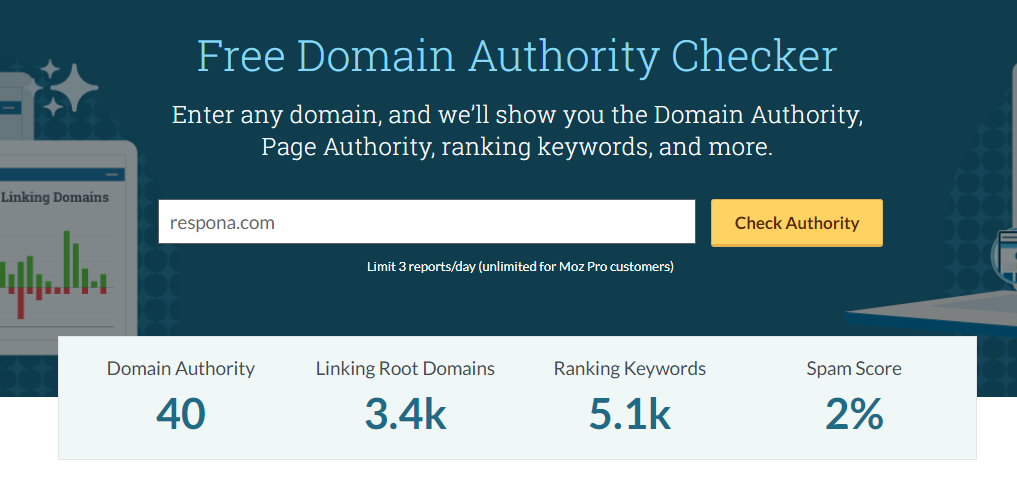
While Google no longer publicly shares PageRank scores, metrics like Domain Authority (DA) from Moz and Domain Rating (DR) from Ahrefs provide an estimate of your site’s credibility based on its backlink profile.
A higher DA or DR means better chances of appearing higher in search results, as confirmed by multiple industry studies.
The equation is simple: more quality links = higher DA/DR = higher rankings.
Referral Traffic

Referral traffic refers to visitors who find your site through links from other websites. Unlike organic traffic, referral traffic is often highly targeted, as users click on links from relevant content they are already interested in.
This can lead to increased social media followers, more newsletter subscribers, and even direct conversions into paying customers.
How to Start Link Building for Startups?
First things first, you need quality content.
Blog posts, in-depth guides, and informational articles, not just your home or product pages. Content is king here.
It’s rare to get links to your homepage or product pages unless you land a spot in a listicle.
Great content will help you cover various relevant keywords, educate your audience, and keep them coming back for more.
If you haven’t invested in a solid blog yet, now’s the time because it’s a massive missed opportunity otherwise.
Next up, you’re going to need some time.
Link building isn’t something you can knock out in a week.
It takes months for your efforts to really start paying off.
Plus, it’s not a one-and-done deal. You need a steady stream of new backlinks to continue growing.
Consider the time it takes to prepare and launch email outreach campaigns.
Even with the best email automation tools, it can take hours to launch a single campaign.
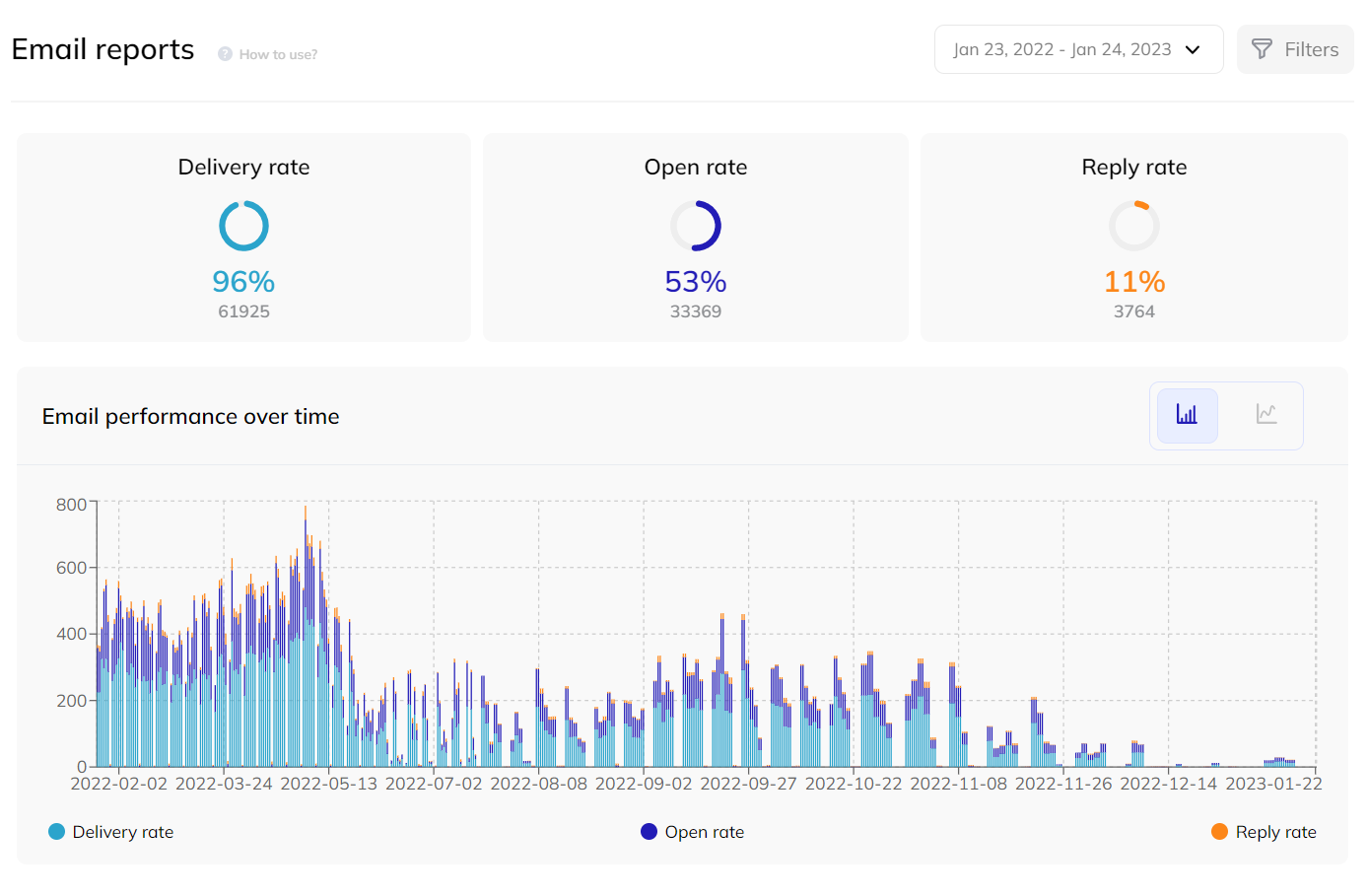
And with an average reply rate of only 10%—where half could be negative—you’re left with around a 5% success rate. Crunch the numbers, and you’ll see you need hundreds, if not thousands, of quality backlinks to make a substantial impact.
Because of the sheer volume of work involved, link building should ideally be a full-time job for at least one person on your team.
If you’re a solo entrepreneur, trying to handle it all yourself can eat up a massive chunk of your day.
You could hire an in-house link builder, work with a trusted link building service, or outsource the process to freelancers.
Top 5 Link Building Strategies for Startups
Link Insertion
Alright, let’s talk about one of the easiest and most scalable strategies out there—link insertion.
Now, for most of these strategies, this one, we’ll be using our own tool, Respona.
The goal here is to find non-competing articles that mention an anchor text related to your content but haven’t linked to you yet.
Respona makes this process a breeze with its dedicated campaign template for link insertions.
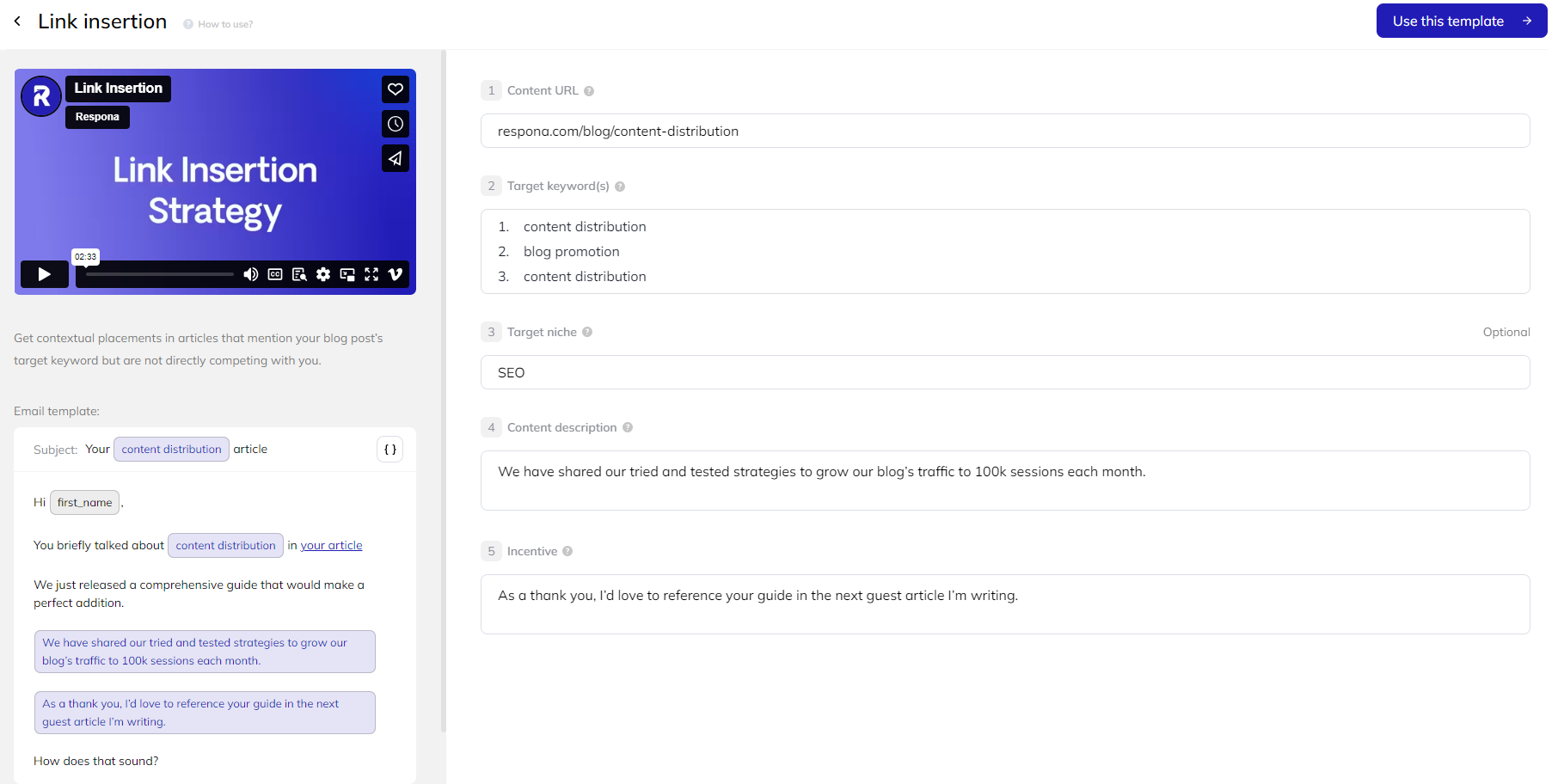
The best part?
This isn’t just an email template; it’s a full campaign template.
All you need to do is fill in the required fields, and it sets up your search criteria and the basis for your email sequence in one go.
First, enter the URL of the article you want to build links to. Then, pick your target keywords and niche. Sprinkle in a brief content description and add an incentive for your prospect. For instance, you might offer an indirect link back to their content in a guest article you’re writing.
Once you’ve filled in these details, click “Use this template” to move forward.
The first step of any Respona campaign is to prepare your outreach sequence.
Since we’re using a campaign template, your outreach sequence is already prepped. However, it’s always a good idea to add a personal touch to stand out.
Before sending, check for spam words, add an unsubscribe link, and set a delay for your follow-up emails (3-5 days works well).

Let’s also add an AI icebreaker variable – it will automatically generate unique personalizations for every opportunity in your campaign.
When ready, move on to the next step – find opportunities.
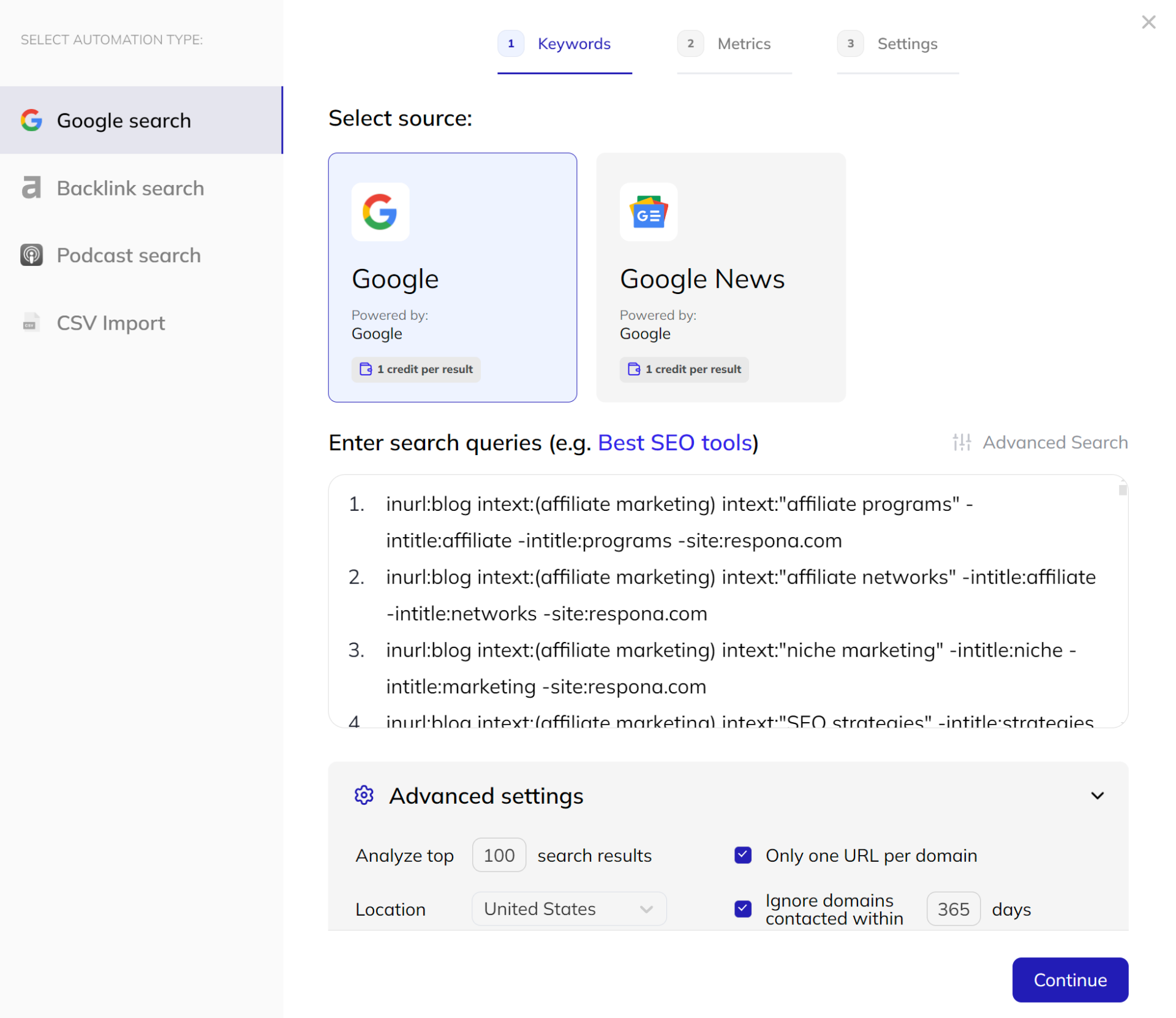
Respona will pull results from Google, using advanced search operators to find relevant articles.
No need to tweak much here since Respona is already set up with targeted search queries to find the best opportunities.
Click “Continue” and add any additional SEO filters to narrow down the results according to your preferences.
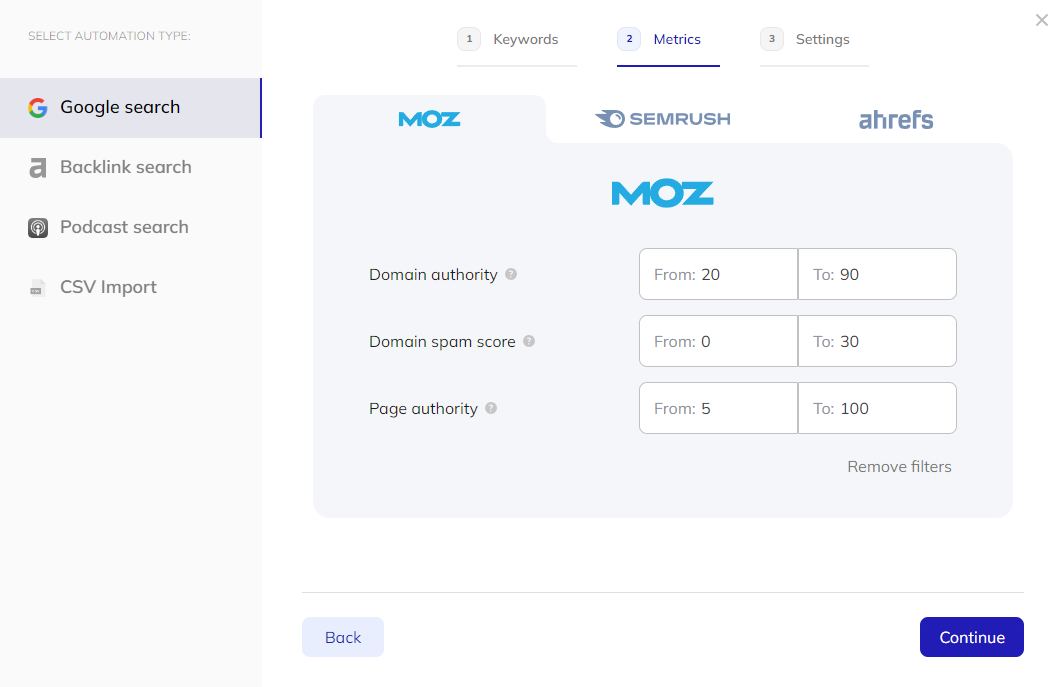
Click “continue” again to access Respona’s email finder, AI personalization and recurring search settings.
You can set the tool to look for the article’s author and another relevant person within the target company.
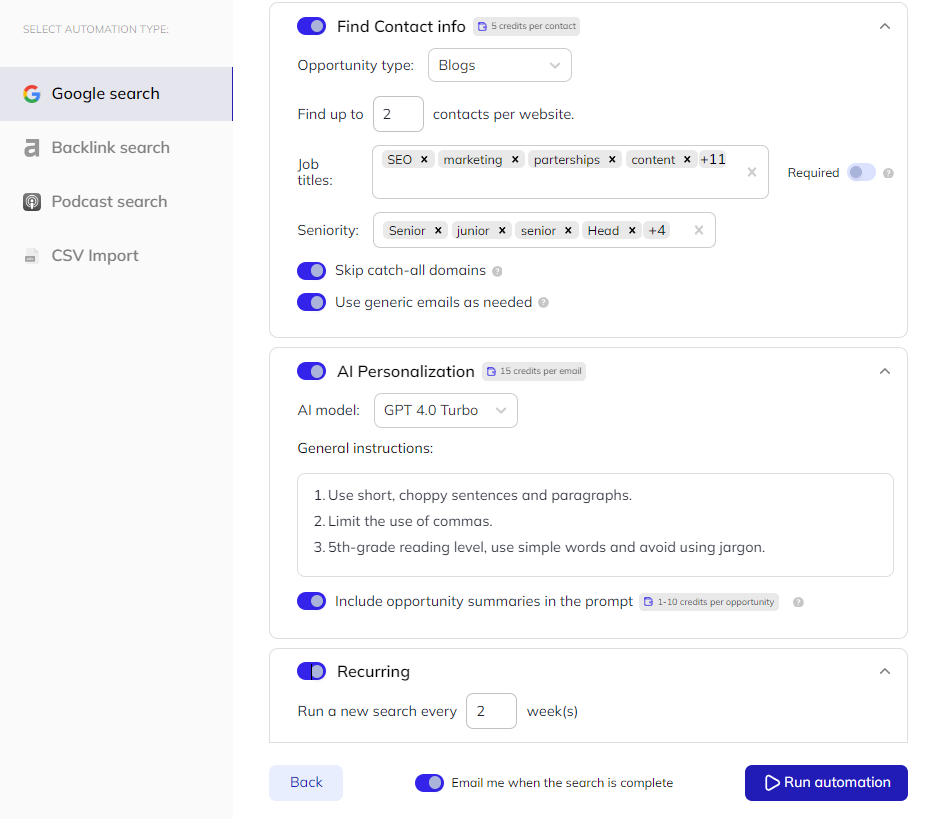
Since we used a campaign template, it’s already pre-set to find the most relevant decision-makers.
However, you can change it by entering the job titles and seniority levels of your ideal prospects, such as people in content marketing, SEO, or partnerships.
You can even set options to assign catch-all or generic company emails if specific contacts aren’t found, although keeping these options off can improve deliverability.
Once you click “Run automation”, Respona will start searching for link building opportunities, their contact information, and personalizing your pitches with AI.
Results will start popping up on the screen as soon as they’re found.
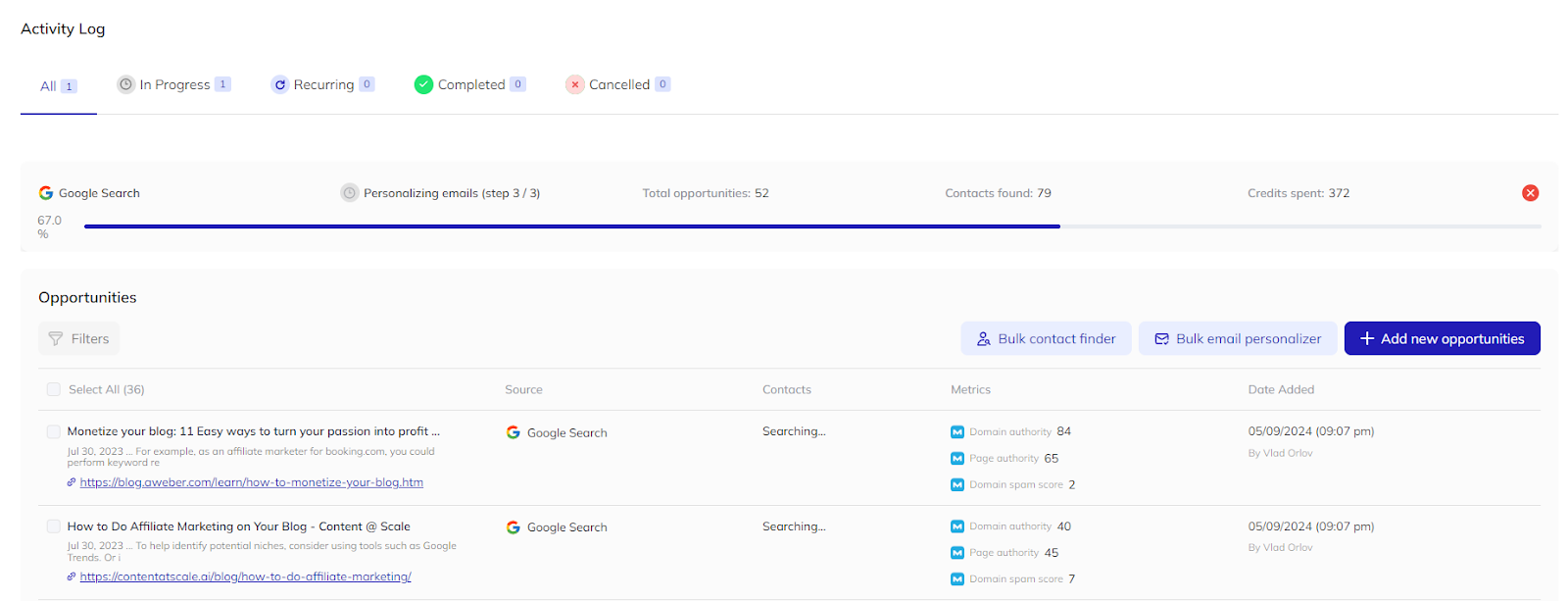
When it’s complete, you can move on to the final step – review and launch.
Here, you can review your AI personalizations and make manual edits where necessary.
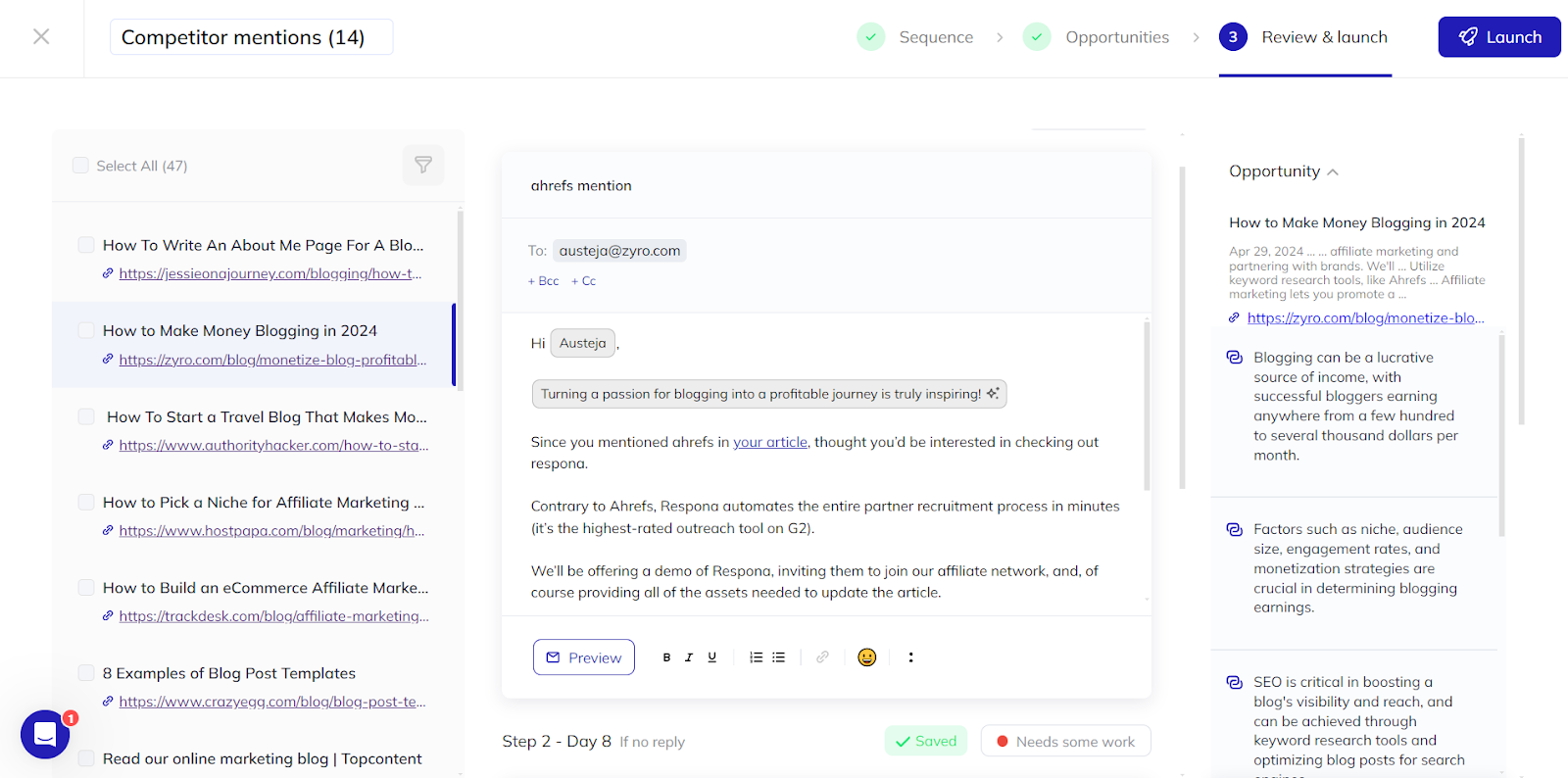
In addition to email addresses, Respona also finds the LinkedIn addresses of your prospects.
We recommend sending a connection request there in addition to your email to put a face to your outreach and increase your chances of getting a reply.
Once the campaign is launched, all that’s left for you to do is look out for responses.
You can do it in Respona’s shared inbox – it brings all of your sender emails into a unified interface.
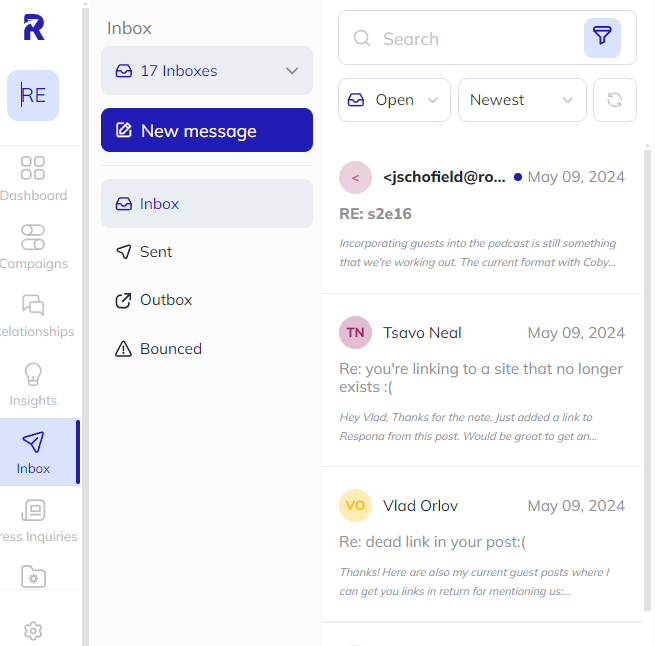
Guest Posting
Guest blogging is a fantastic strategy for building backlinks to your site. It involves writing valuable content for reputable blogs and websites in your industry.
Not only does this earn you high-quality backlinks, but it also helps you build relationships with other content creators and editors.
When reaching out for guest posting opportunities, it’s beneficial to offer your link partners indirect link placements in your guest articles.
This means integrating their links naturally within during content creation, rather than engaging in direct link exchanges, which Google really doesn’t like. .
Skyscraper Technique
The skyscraper technique is all about outperforming top-ranking content in your niche.
Start by identifying high-performing articles on your target keywords.
Then, create a more comprehensive, informative, and engaging version of that content.
Once your superior piece is ready, reach out to the sites that linked to the original content and pitch your improved version.
This method not only builds quality backlinks but also establishes your content as an authority in the field.
Relationship-Based Link Building
Relationship-based link building focuses on building genuine connections within your industry. Regularly share guest post drafts with your link partners, offering them valuable content that includes their links naturally.
This collaborative approach fosters trust and enables reciprocation without direct link exchanges, making it a sustainable link building strategy.
Becoming a Guest on Podcasts
Being a guest on podcasts is a powerful way to gain backlinks and exposure.
When you appear on a podcast, the host often provides a backlink to your website in the show notes or on their website.
It’s an excellent opportunity to showcase your expertise, connect with a new audience, and earn high quality backlinks naturally.
Link building cheat sheet
Now Over to You
So, in conclusion, link building for startups can be a powerful strategy – especially when done at scale.
Publish guest posts, get link insertions, and get on other people’s podcasts to strengthen your link profile and position yourself as an industry leader.
Need help building links for your own startup?
Don’t hesitate to start your 14-day free trial with Respona to see how we can help.
Frequently Asked Questions (FAQ)
What is link building and why is it important for startups?
Link building is the process of acquiring hyperlinks from other websites to your own.
For startups, it is crucial as it helps improve search engine ranking, drive referral traffic, and build authority within your niche, which are essential for gaining online visibility and attracting new customers.
How can startups get high-quality backlinks without a large budget?
Startups can get high-quality backlinks by engaging in guest posting, leveraging existing relationships, becoming guests on relevant podcasts, and using techniques like the Skyscraper or Reverse Skyscraper techniques.
These methods rely more on time and effort rather than financial resources.
What kind of content should startups focus on for effective link building?
Startups should focus on creating high-quality, valuable, and shareable content that answers specific questions within their niche.
This could include in-depth guides, case studies, infographics, and data-backed articles that industry influencers find valuable and useful.
How long does it take for link building efforts to show results?
Link building is a long-term strategy, and it typically takes several months for the effects to be noticeable.
Patience is key, as it can take time for search engines to recognize and factor in new backlinks into search rankings.
What are common mistakes startups should avoid in their link building strategies?
Startups should avoid black-hat techniques such as buying links or participating in link farms, as these can lead to penalties from search engines.
They should also ensure their links are contextual and relevant, avoiding excessive reciprocal link exchanges or linking only to unrelated low-quality websites.





